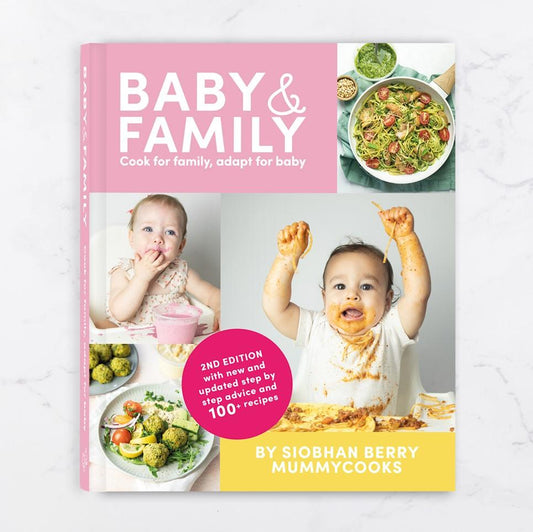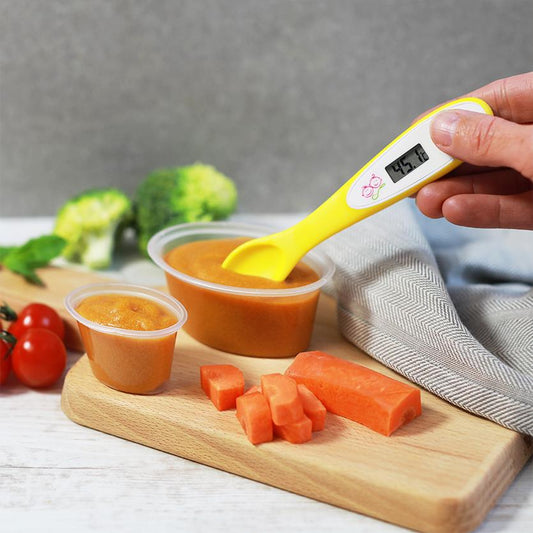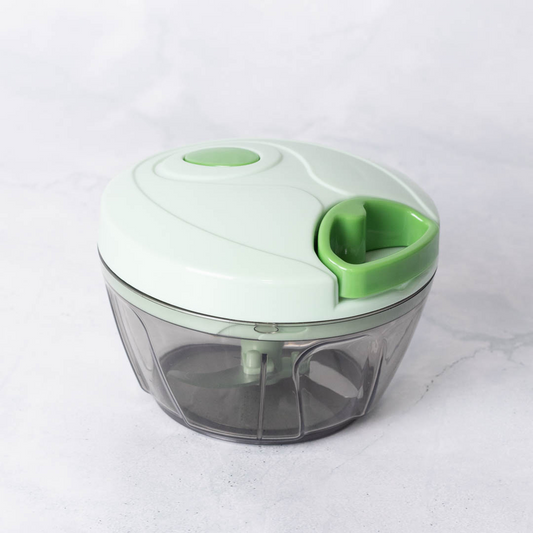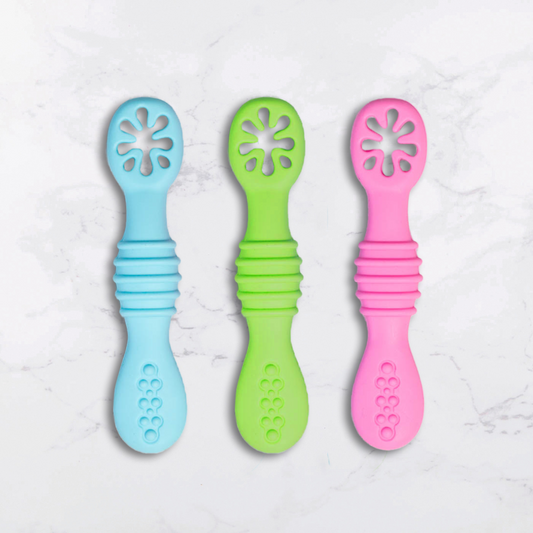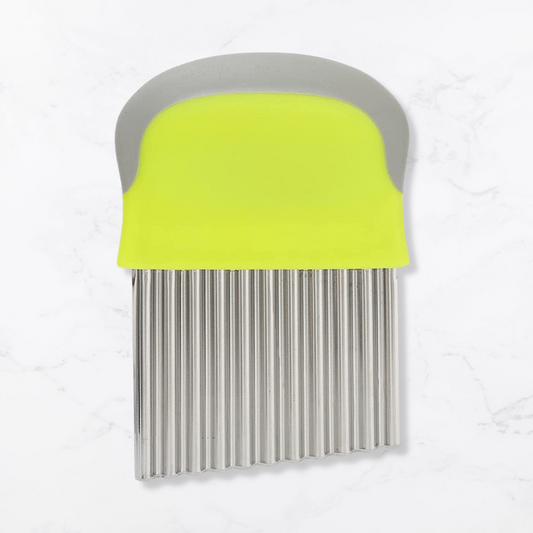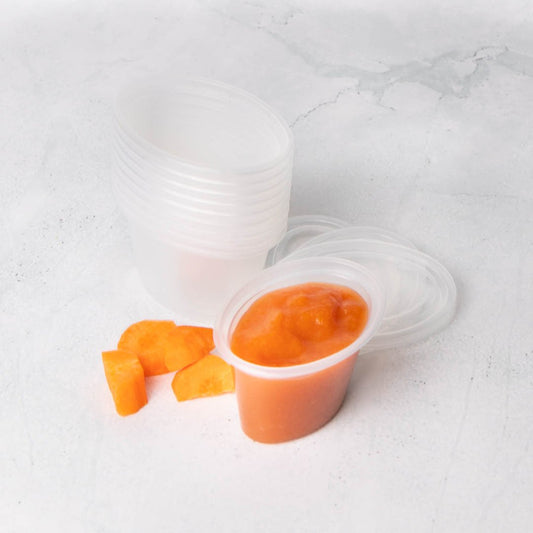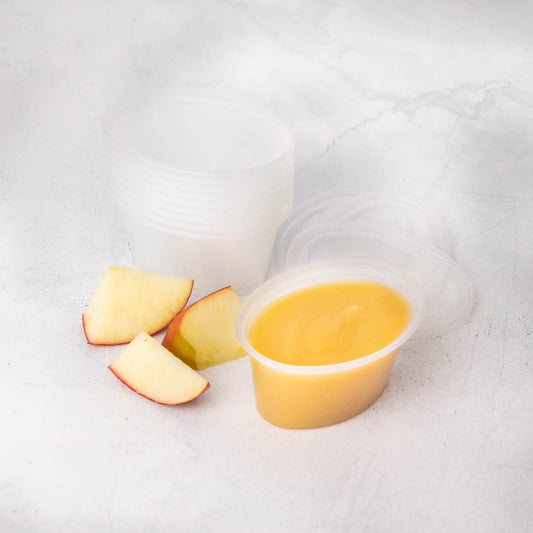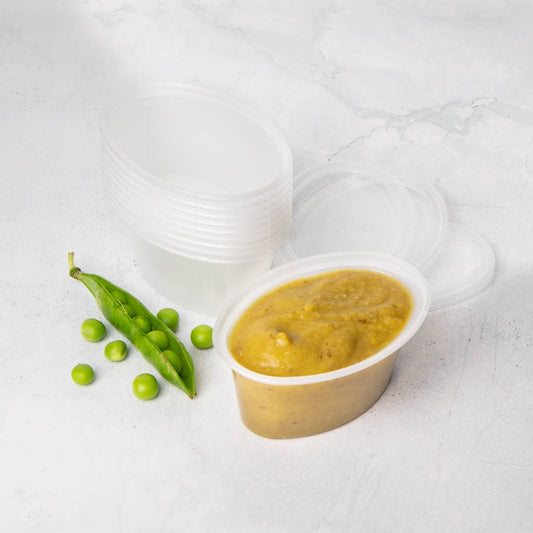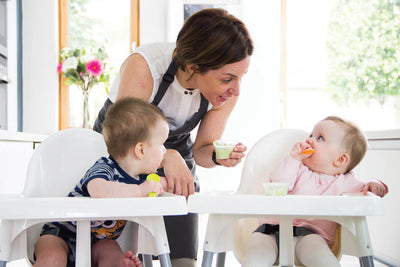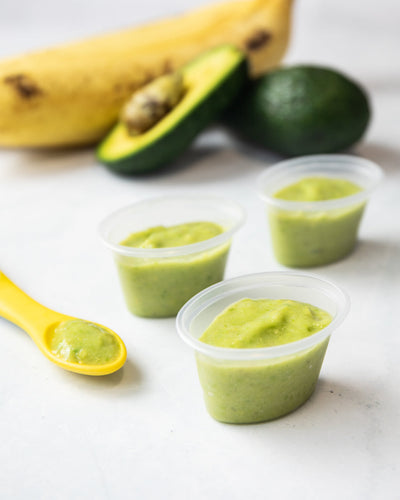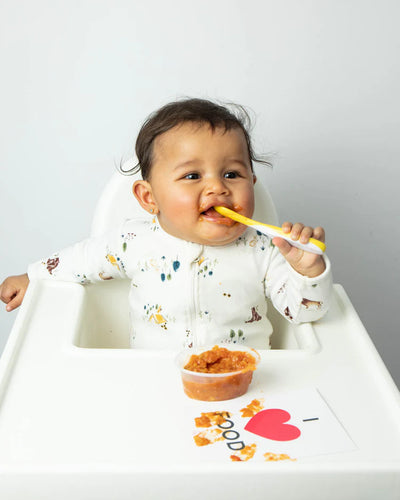The importance of utensils for feeding and motor development, and what types you should use. Did you know that by offering your baby feeding utensils like a beaker and a spoon from six months will help them understand better how to feed themselves as they reach 1 years of age. That’s not to say they will be able to use the utensil straight away, rather that they will learn how to use it over the next six months.
I was delighted to have my sister Catriona Fahey, a Pediatric Occupational Therapist in the Mummy Cooks kitchen helping us shoot videos for our on-line Academy. If you would like to learn more about utensils check out our on-line Academy here.
Best spoons to use
Introducing a spoon to your weaning baby and allowing them to feed themselves may be a messy process, but it is a really important step for your baby to develop their motor skills. At first, it will look like your baby is struggling with the spoon, and the spoon may end up upside down or sideways in their mouth. This is completely normal as it is all a learning process and is needed for the development of spoon use.
When choosing your spoon, make sure to look out for the following features:
- Narrow, so that the spoon can fit in their mouth
- Not too deep, so that they don't struggle to get food off the spoon
- Slightly weighted, so that your baby can register that the spoon is there
- I recommend using a spoon like our Thermospoon
With such a range of beakers on the market we’ve given you a few tips so you know what to look out for.
- Important to introduce a beaker from 6 months just to get the child used to the idea
- At the beginning, offer just a small amount of water
- When giving a baby a beaker, you want them to develop a sip so avoid beakers that your baby will have to suck water out of. This is important as they have already learned how to suck from the breast or bottle
- A beaker that the baby can chew on to get the water to come out is a great idea as this will allow them to sip rather than suck to help develop their motor skills
- A 360 cup mimics an ordinary free flow cup, and what the child is doing is closing their lip on the top to allow the water to flow out. Some children may take a bit longer to understand how the cup works which is fine - the 360 cup wouldn’t be suitable for a 6 month old - rather a 9-10 month baby.
Remember: Introducing a beaker of water is just a learning opportunity and a way to help develop their motor skills, they will get the majority of their liquid from the milk.
How to sit a child in a highchair
Posture is really important for development and for developing skills in a child, in particular relation to feeding, so it’s vital to buy a highchair that will provide your child with the perfect feeding environment. Getting the right highchair will stay encourage your baby to stay seated in it for longer and explore their food for a longer time.
What you should look for in your highchair:
- A highchair with a high back. If the back is too low the child will start falling backwards which can serve as a distraction when feeding.
- The chair bottom shouldn’t be too soft. If the bottom is too soft, this will give your baby the ability to sag or slouch. You don’t want your child to slouch when feeding. By providing a hard surface, this will allow your child to tilt their pelvis correctly to sit upright.
- You don’t want a highchair that is too big, as this will cause your baby to slide and fall into it. However, if you need to you can easily adapt the highchair if your baby is too small. Things like rolled towels are perfect to provide your baby with more stability.
A footrest is also important to provide your child with stability in the highchair, which will help improve their concentration on their food, as well as whelping them in learning to walk later on.
Our Weaning Advice page provides information and advice on weaning your baby. It includes recipes, tips, and articles on a variety of topics related to weaning, such as introducing finger food, adding herbs and spices to baby food, and healthy snacks for your baby, and lots more.





